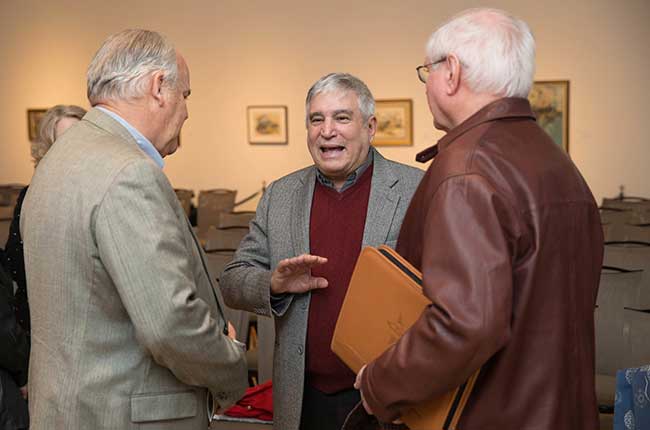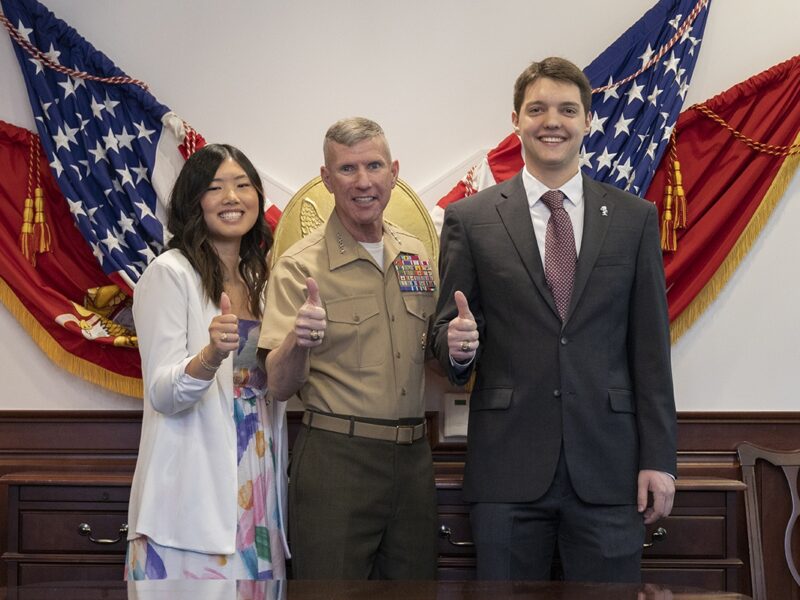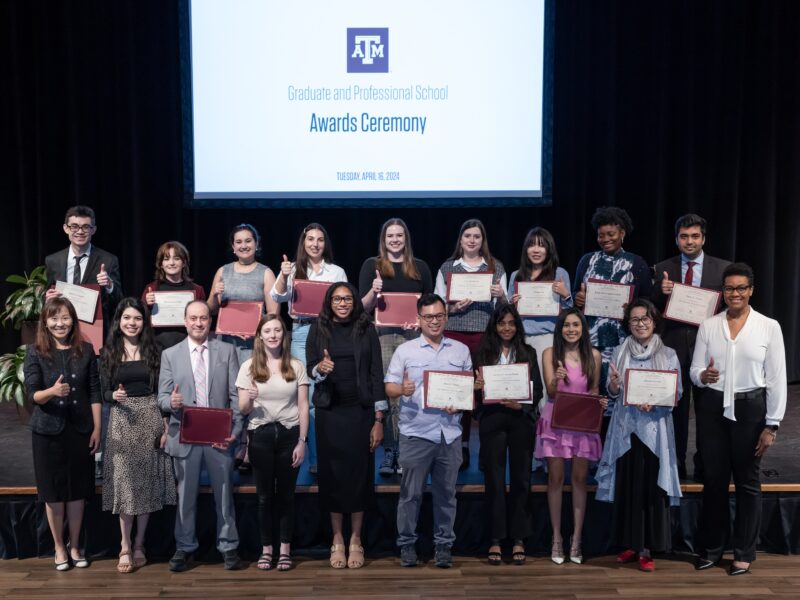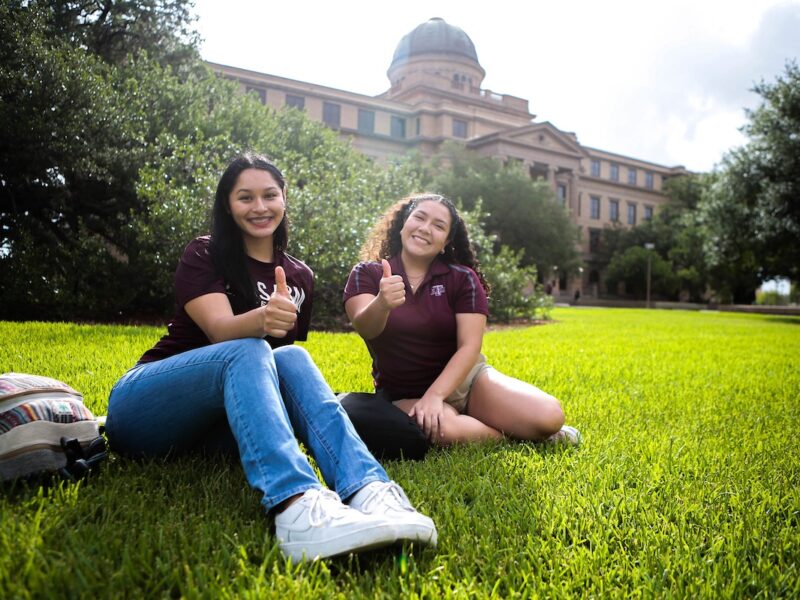In classrooms and communities across the state of Texas, the Texas Liberator Project, an initiative of the Texas Holocaust and Genocide Commission (THGC), is helping to teach the history of the Holocaust, the mass genocide committed by the Nazis during World War II, through the eyes of Texas soldiers who liberated survivors of concentration camps.
“The liberator project shines a light on the people who were willing to make sacrifices for the good of people they had never met,” said Peter Tarlow, chairperson of the commission and lecturer at Texas A&M University Medical School. He also is the rabbi emeritus for Texas A&M Hillel and director of the Center for Latino – Jewish Relations.
The project, among other THGC programs, was the topic of a lecture delivered by Tarlow on the campus of Texas A&M University last month.
The efforts of the commission, established in 2009 by the Texas Legislature, have led to other groundbreaking outreach and advancement programs in Holocaust and genocide education, including the inclusion of teaching standards on the topic in the Texas Essential Knowledge and Skills (TEKS) and the College Board’s Advanced Placement curriculum, which affects textbooks throughout the United States, Tarlow said.
Other initiatives include teacher workshops, a digital library for educators, video and essay contests for students and teachers, traveling exhibits, and grants for educational programs.
“Texas is in the forefront, and much of what you see [from the THGC], no other state has accomplished,” Tarlow said. “People talk about Texas being a whole other country, and we have the right to say that because we probably have done more [to promote Holocaust and other genocide education] than the other 49 states together.”
The liberator project consists of an interactive application and user’s guide that introduces the Holocaust to students, a companion website that provides additional educational resources, an honor roll that commemorates more than 350 known Texas liberators, a book that highlights the testimonies of 21 Texas liberators, and an exhibit that will travel statewide throughout 2018. Last November, a ceremony was held at the Texas State Capitol in honor of the Texas liberators.
“We’re rushing against time because we realize these people will not be here forever,” Tarlow said. “Time is against us — if they were 20 years old 70 years ago, they’re 90 now — so we’re trying to find them and honor them.”
During the ceremony in the Texas Senate Chamber, each liberator was presented a medal by a survivor of the Nazi concentration camps.
“A person who was liberated was able to look into the eyes of the American soldier and say ‘thank you,’” Tarlow said. “They were able to talk, and tears were flowing.”
After the ceremony, World War II airplanes flew over the Capitol and tipped their wings to honor the sacrifices made by the soldiers. The traveling exhibition for the liberator project was on display throughout the building during this time for an extended period – two weeks rather than the standard two days.
“[The liberators] were young, in shock, and unprepared for what they found in the camps, and many of them never told their stories,” Tarlow said. “So this was the first time many of them could speak about it, and their children thanked us for allowing their fathers to say what they had never said.”
A grant is enabling the commission to provide approximately 2,500 copies of the book, “The Texas Liberators: Veteran Narratives from World War II,” to every high school, public and private, in Texas. Tarlow also will present copies of the book to the Texas A&M Corps of Cadets and to the Cushing Memorial Library and Archives.
With the initial support of Baylor University followed by significant help from Texas Tech University, the liberator project grew from an initiative to record oral histories to a multifaceted approach to Holocaust and genocide education that other states are interested in emulating.
“At this point, we are trying to involve every university in Texas in one way or another. We are all Texans and all Americans,” Tarlow said. “That is what this project is all about.”
The commission was established in 2009 to ensure that educational resources about the Holocaust and six other official genocides are available for students and teachers. The Texas Legislature demonstrated its support of the THGC with additional funding to expand its staff, and the commission established a nonprofit organization, Friends of the THGC, to help with its charitable and educational endeavors.
Tarlow, also an expert on the effects of crime and terrorism on the tourism industry, participates in speaking engagements around the world, and part of his role is to win friends for the United States.
“Often, people abroad will say to me, ‘So what have the Americans done for us?’ They frequently begin with the phrase, ‘You people,’ and then list a long litany of complaints,” Tarlow said. “I look them in the eye and remind them that if it weren’t for the sacrifices of so many of our young men and women, they would not live in free countries today.”
###
Media contact: Elena Watts, marketing and communications specialist, at 979-458-8412 or elenaw@tamu.edu; Peter Tarlow at 979-219-0209 or ptarlow@tourismandmore.com; or William McWhorter, executive director of the THGC, at william.mcwhorter@thgc.texas.gov or 512-463-8815.





